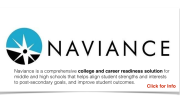We have all had the thought: What am I going to do with my life? The answer begins with choosing a college major. There are many factors that should be kept in mind when making this difficult decision.
One thing to consider is the probability of finding a steady job in your selected career. In 2017, the National Center for Education Research (NCES) stated that general education majors had the lowest unemployment rate among recent graduates, with one percent unemployed. Marketing and marketing research, elementary education, and nursing came close behind with rates of 1.6 percent.
It is also important to consider the relevance of your chosen career. The most in-demand degrees of 2019, according to collegeconsensus.com, were a Master’s degree in physical therapy, statistics, mathematics, and nursing.
Many majors have been on the rise in recent years. Majors in health-related fields have drastically increased since 2005 by 168 percent, according to cnbc.com, making it the fastest growing major.
“It is important to consider the impact you will have on the people around you, which is why I want to be a nurse,” Flavia Heredia (’20) said.
Another significant aspect is your future job’s income.
“You have to consider the price of going to college. It is important to choose a career that can pay off that cost,” Brooke Boccuzzi (’20) said.
According to PayScale’s annual College Salary Report, petroleum engineering is the highest paying job. Four year graduates’ median salary for the first five years of their employment was nearly $95,000, increasing to almost $177,000 after ten years of experience. Electrical engineering and computer science were closely behind, rounding $88,000 at first and $142,000 after gaining experience.
PayScale states that the highest paying two year degree is physician assistant studies, which can pay nearly $56,000 off the bat and $98,000 after ten years.
In actuality, cnbc.com says that business is the most popular major overall, followed by health professions, social sciences and history, psychology, and biological and biomedical sciences.
As expected, these rankings differ by gender. According to the NCES, the most popular majors among men are business, social science and history, and engineering. For women, health professions, business and psychology are the most popular.
However, if you are still questioning your major, you are not alone. According to a 2011-14 study by the U.S. Department of Education, it is estimated that 30 percent of college students change their major at least once before graduating.
It is important to note that switching a college major comes with setbacks. Entering late into the year means you will have to catch up on information you have missed, possibly resulting in more required classes and therefore additional college expenses. Despite this, changing your major can be extremely beneficial in your search to find a career you are confident in.
Do not worry if you still do not know what you want to do in life. In a recent study at Western Kentucky University, there was a higher four year graduation rate among students who waited two years to declare a major (83.4 percent) than those who decided upon admittance (72.8 percent). Waiting to choose a major can give you time to explore new interests and find what you are passionate about. In the end, the most important thing is to choose a major that you are actually interested in and can envision yourself doing for the rest of your life. No pressure.





